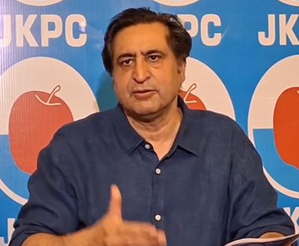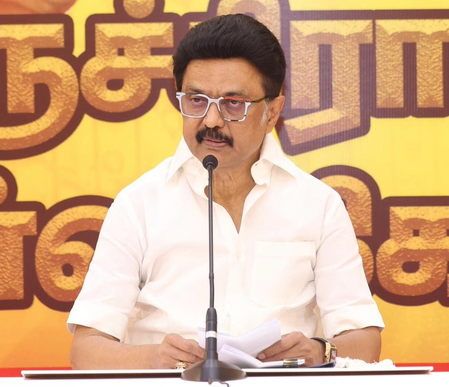
Srinagar, Dec 19, (IANS) Jammu and Kashmir Peoples Conference (JKPC) President and Handwara MLA Sajad Lone has condemned the removal of a chapter based on the life of Kashmiri saint Sheikh Noor-Ud-Din Wali from Class 9 textbooks by Jammu and Kashmir Board of School Education (BOSE), a JKPC statement said on Thursday.
Calling it “pure cultural terrorism” and “an assault on our culture and ethos,” Lone stated that Sheikh Noor-Ud-Din Wali has been revered by all Kashmiris, irrespective of religion and is held in the “highest esteem.”
He emphasised that in these times, “smudged with violence, greed and hatred,” the great saint’s life serves as a “beacon of hope and a role model for emulation.”
“Our great saint and his saintly ways were etched in our hearts and minds much before BOSE came into existence,” Lone remarked.
Urging for introspection, he strongly condemned the decision, reaffirming that the teachings and legacy of Sheikh Noor-Ud-Din Wali are an inseparable part of Kashmir’s cultural and spiritual identity.
Sheikh Noor-Ud-Din Wali, also known as Nund Rishi, was a Kashmiri Sufi saint, mystic, and poet. He was one of the founders of the Rishi order in Kashmir. Among Muslims, he is also known as Sheikh-Ul-Alam (meaning spiritual guide of the world) and Alamdar-e-Kashmir (meaning flag-bearer of Kashmir); while among Hindus, he is referred to as Nund Lal and Sahajananda. His works and teachings have influenced many spiritual teachers and saints.
Born in Kulgam in 1377, Noor-ud-Din renounced worldly life at the age of 30 and retired to a life of meditation. The cave where he dwelt is in Qaimoh, a town in Kulgam in southern Kashmir. The cave lies about 10 feet deep. The airport in Srinagar is named after him.
Noor-ud-Din’s teachings and messages are spread through poems called ‘shruks’. His poems typically have four to six lines each and revolve around themes that highlight moral principles and often call for peace. He strove for unity between Hindus and Muslims. He is said to have died in 1438 in Charar-i-Sharief.
–IANS
zi/kvd






